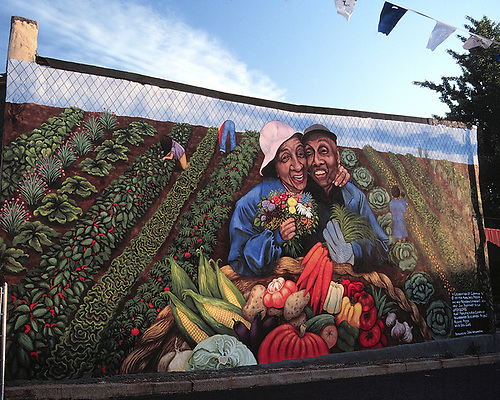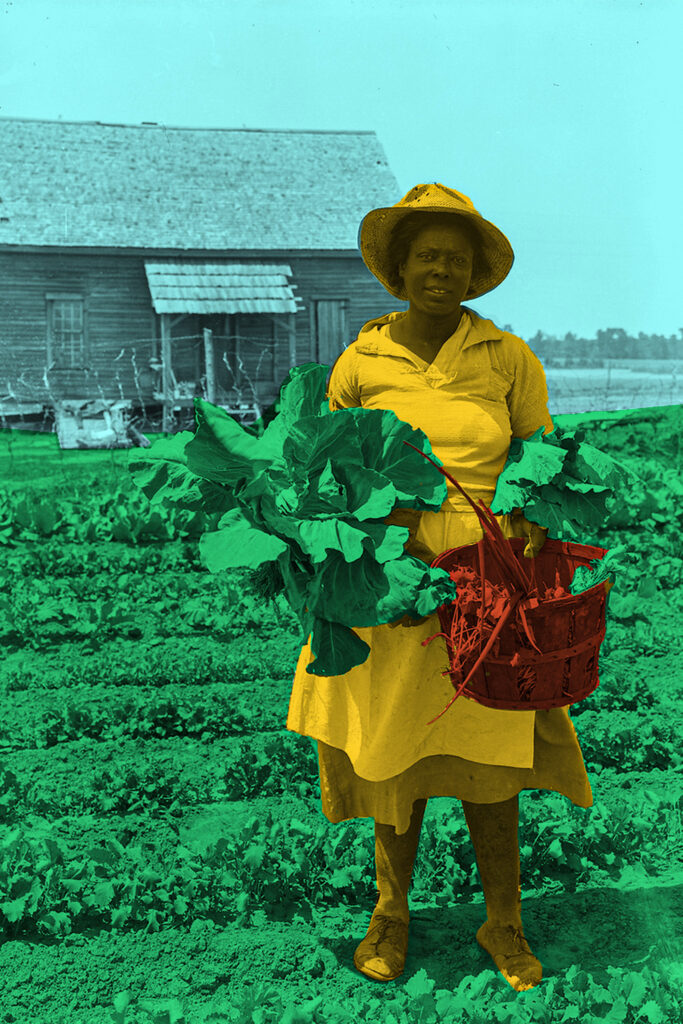Join us as we celebrate the legacies of these visionaries who saw food as more than sustenance but as a tool for liberation, empowerment, and justice. Their work continues to inspire the farm to school movement, reminding us that access to healthy food and agricultural education is a fundamental right for all
Fannie Lou Hamer and The Freedom Farm Cooperative:
Fannie Lou Hamer (1917–1977) was a civil rights activist, voting rights advocate, and community organizer from Mississippi, born into a sharecropping family. She co-founded the Mississippi Freedom Democratic Party (MFDP) to challenge racial exclusion in politics and was known for her powerful speeches, including her testimony at the 1964 Democratic National Convention. In 1969, she founded the Freedom Farm Cooperative (FFC) to combat poverty and food insecurity among Black farmers and sharecroppers by providing land for collective farming, housing, and economic self-sufficiency. At around 650 acres, the FFC helped thousands of families gain access to fresh food, housing, and financial independence, embodying Hamer’s vision of self-reliance and racial justice.

Gladys Kidd Jennings, R.D.
Gladys Kidd Jennings was a trailblazer in nutrition, focusing on the unique dietary needs and socio-economic challenges within Black communities since the 1960s. Born in 1925 in Columbus, Ohio, she pursued her passion in nutrition and dietetics, becoming the first African American woman to earn a master’s degree in Foods and Nutrition from Washington State University in 1948. Jennings dedicated her career to academia, teaching at various universities and advocating for better nutritional understanding and practices in Black communities. She was recognized for her contributions with numerous awards and was active in organizations aimed at promoting nutritional education. Jennings’s legacy lies in her commitment to integrating cultural respect into nutritional advice for the African American community, inspiring future generations of Black female nutritionists to continue her work in community health and education.

Flemmie Pansy Kittrell
Flemmie Pansy Kittrell broke barriers as the first African American woman to earn a doctorate in nutrition, significantly influencing the fields of home economics and nutrition by integrating scientific research into understanding the holistic well-being of children, especially those from Black and low-income families. Born into a sharecropping family in North Carolina in 1904, Kittrell’s early work experiences funded her education, leading to her historic Ph.D. from Cornell University in 1936. Beyond food, she explored the broader environmental impacts on children’s success and introduced the concept of “hidden hunger” to describe malnutrition in seemingly well-fed individuals. Kittrell’s innovative work at Howard University’s experimental nursery laid the groundwork for the Head Start program, and her international travels furthered her impact on global children’s health and nutrition policies.

George Washington Carver (c. 1864–1943) was a scientist, educator, and agricultural innovator known for his work in sustainable farming and crop diversification. Born into slavery, he became a prominent researcher at the Tuskegee Institute, where he promoted soil conservation and developed hundreds of uses for crops like peanuts, sweet potatoes, and pecans. Carver’s work helped impoverished Southern farmers, particularly Black sharecroppers, transition away from soil-depleting cotton farming. His legacy includes advancements in agricultural science, environmental stewardship, and the promotion of education as a path to empowerment.




